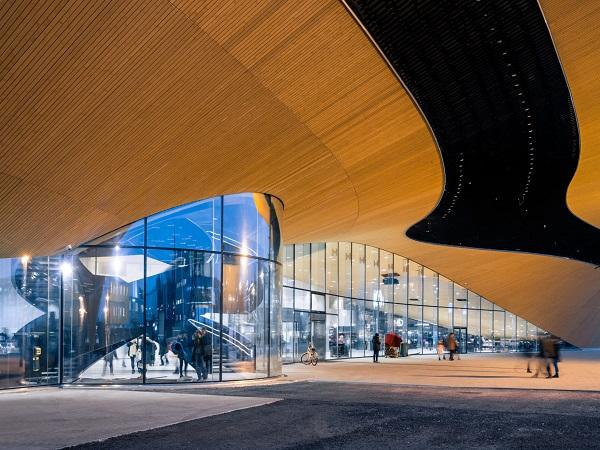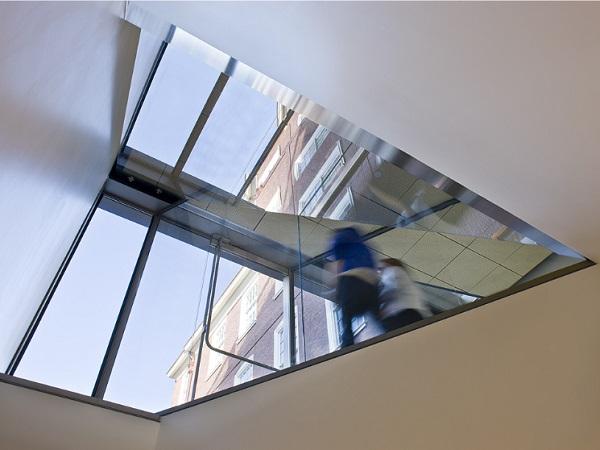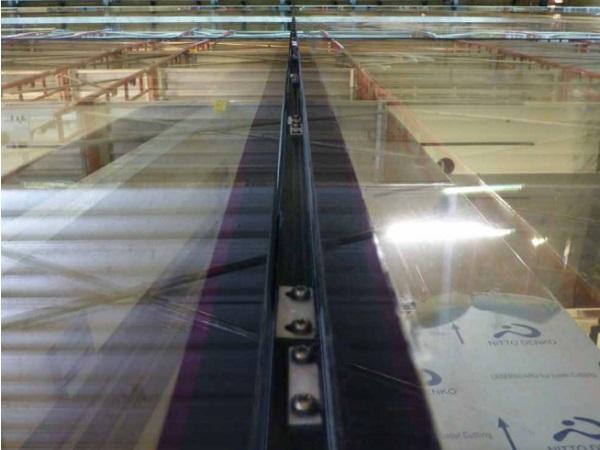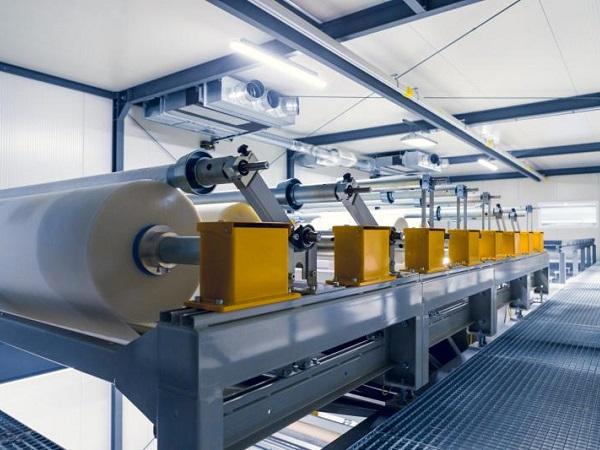Others also read
A Novel, Demountable Structural Glass System Out of Dry-Assembly, Interlocking Cast Glass Components
| Combining transparency with a high compressive strength, glass enables us to make diaphanous load-bearing compressive members, from beams and columns to free-standing facades and entire glass structures.
| In 2015, the bold concept of a curvy tower at 252 East 57th Street, New York, was presented to an audience at the Glass Performance Days conference. At that time, building construction was just beginning, and no one was certain such a novel idea could be realized.
| The project HYbrid GLAss-Steel Stele (HYGLASS) aims at the realization of a cantilevering hybrid vertical structure working as a stand-alone or a grid-connected smart tower.
| This poetry in architecture, one of the most advanced structures in the Nordic countries, Oodi Library exalts the very elements of glass, wood and steel that work in balance as a free-standing masterpiece.
| The paper illustrates the design project of the main laminated glass balustrade of a steel staircase installed in the historical Margherita Theatre in Livorno, Italy.
| In this paper, the emphasis is put on explosion resistant glazing systems.
| In glass tempering, we look for equipment that uses less energy, leading to fewer emissions. But sometimes, the numbers are too good to be true.
| Global environmental concern is motivating efforts to improve energy efficiency in all industrial sectors. And glass tempering is no exception.
| Today, almost all new devices – from home appliances to production equipment – are connected. Rapid development in consumer electronics has been increasingly moving towards industrial use. In the glass industry, this development is still in its early stages.
| To really succeed in glass lamination, it takes much more than just having the best equipment – it’s about understanding the process in and out.
| The aim of this paper is to explain how the design intent of a bespoke glazed façade develops from the point of view of the façade consultant BIFF SA.
| The two case studies illustrate how the engineering of glass can fluctuate with design intent in unusual scenarios – when we cannot rely solely on conventional codes and standards to guide the analysis.
| Five commercial glazing system analysis and a project study show the advantages of using Insulated Glass Unit (IGU) edges to mechanically attach glass to buildings.
| Analysis of worldwide glass industry developments and trends.
| Glass production is an energy-intensive process by its nature, so even small reductions there can result in considerable savings in energy and costs.
| The article describes the mechanical behaviour of PVB interlayer and the constitutive models by which the polymer can be represented under different load cases.
| Full convection, forced convection, focused convection, recirculated convection – the list of terms goes on and on.
| The article examines a modular glass system about its architectural possibilities with a special focus on the connection methodology.
| We all know that glass lamination is the process of bonding two or more panes of glass with a flexible interlayer in between. Sounds simple. But is it always so in practice?
| I want you to think about your daily journey to work. Take a minute, visualize it – and then answer me this: How many glass surfaces did you see? Too many to remember?
| Serrated building envelopes are a very eye-catching element of contemporary architecture. This type of façade in plan resembles the edges of a serrated blade, hence the name.
| Limiting global warming require “rapid and far-reaching” transitions in land, energy, industry, buildings, transport, and cities.
| Bent and tempered glass has long been of great interest to the market. The process of creating high-quality tempered bent glass has evolved over the years.
| Do you still spend precious time doing the meticulous task of manually counting glass cullets for a glass fragmentation test? Or maybe your modern counting tool is not exactly the gold standard? If so, we have some good news for you!

























